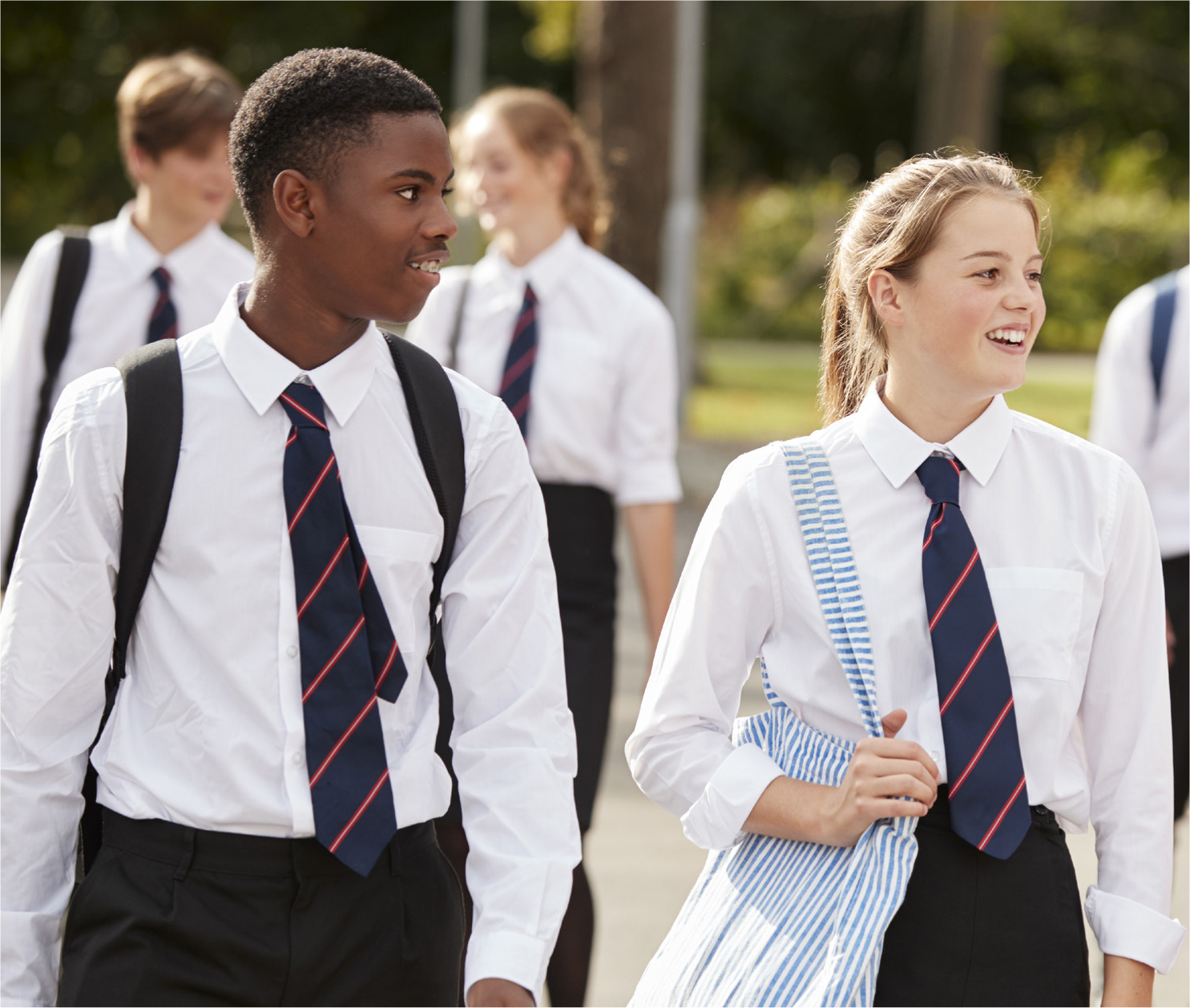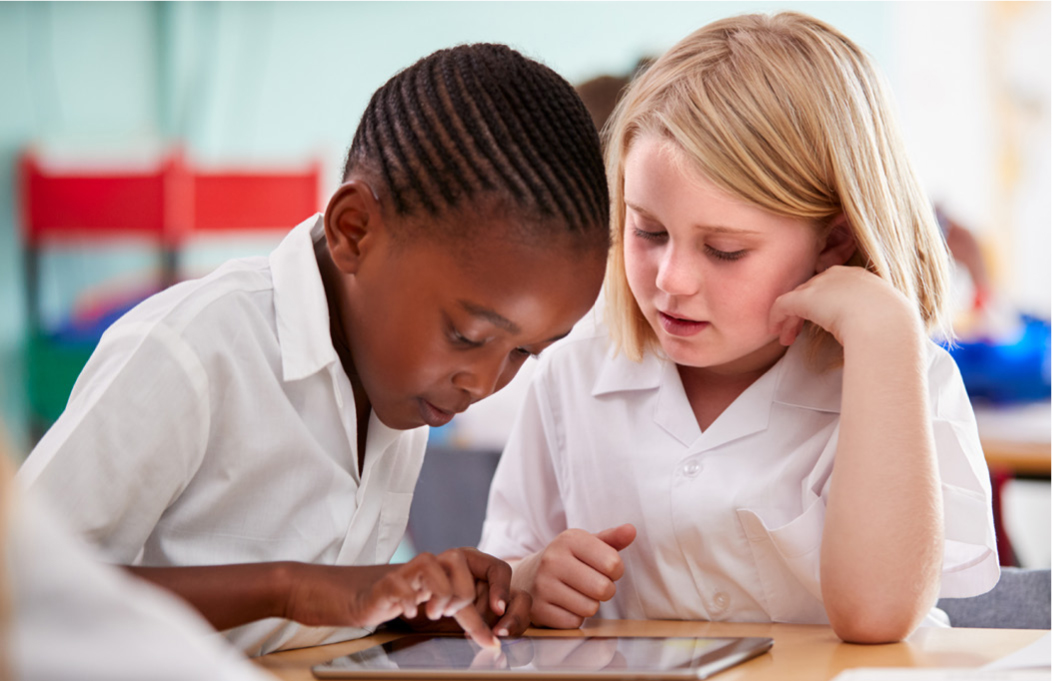Ministers have been urged to abandon ‘dogmatic’ approach to COVID-19 plans
Ministers have been urged to stop being so ‘dogmatic’ about their management of COVID-19 in schools after a week of chaos caused by a number of last-minute reversals.
School leaders have yet again been left angry and frustrated after prime minister Boris Johnson acted to close schools to the majority of pupils just 48 hours after insisting that they were safe to re-open.
There is further incredulity at the government's handling of the COVID-19 pandemic after the Department for Education (DfE) allowed millions of primary school pupils to head back into school on Monday, January 4, only to then tell them to stay home amid fears over the quickening spread of new variant of the virus.
Schools are now to remain closed until at least mid-February to all but vulnerable pupils and the children of key workers, with remote learning once again kicking in for the majority of pupils.
The Association of School and College Leaders (ASCL) acknowledged that the situation was ‘fast-moving’, but said that part of the problem is that ministers keep ‘boxing themselves into a corner by being so dogmatic about their plans’ – even as those plans are ‘obviously unravelling’.
As evidence, Geoff Barton, ASCL general secretary, pointed to the legal threats at the end of last term as some schools tried to close early before the Christmas break.
Indeed, when the London borough of Greenwich tried to close schools early before Christmas it was forced to back down by the DfE only to be told to shut it schools one day into the new term.

Mr Barton said: ‘We are relieved the government has finally bowed to the inevitable and agreed to move schools and colleges to remote education in response to alarming COVID-19 infection rates.
‘It is very frustrating that it issued legal threats to schools at the end of last term … and then made a series of chaotic announcements about the start of this term.’
The DfE began to scrap its re-opening plans on December the 30th when it decided to delay the planned staggered start of term for secondary schools by two weeks and to close some primary schools in hotspot areas.
Throughout ministers have continued to insist at each opportunity that their plans would not be changing, including education secretary Gavin Williamson's assertions on December 30 that the summer's exams and school re-opening would go ahead.
Prime minister Boris Johnson said that he had ‘no doubt’ that schools were safe to re-open when he appeared on the Marr Show on Sunday, January the 3rd.
And perhaps summing up this ‘dogmatic’ approach, the DfE insisted on Monday that vocational exams this month will go ahead before on Tuesday acting to make them optional for schools and colleges.
Meanwhile, when pressed on the issue Michael Gove said on Tuesday that GCSE and A level exams would now be cancelled this summer.
Mr Barton continued: ‘Everybody understands this is a fast-moving situation, but ministers have to stop boxing themselves into a corner by being so dogmatic about their plans even as those plans are obviously unravelling.
‘We hope the government will now work constructively with the profession to bring all pupils back into schools and colleges as soon as it is safe to do so, with timely information and guidance, and that it avoids its usual shambolic approach.’
Dr Mary Bousted, joint general secretary of the National Education Union, which reminded its members earlier this week of their legal rights not to have to work in an unsafe environment, echoed the concerns about ministers' attitudes.
Speaking on Monday, she said: ‘This is a crisis point for the nation, and a great deal of what got us here should not simply be blamed on new strains of the virus.
‘The government has had eight months to prepare for a renewed period of remote learning, and for alternatives to exam assessment at GCSE and A Level, but it has not used that time wisely or well. Gavin Williamson has become an expert in putting his head in the sand – ignoring the mounting evidence of COVID-19 transmission in schools to education professionals and into pupils' households.
‘SAGE – Scientific Advisory Group for Emergencies – told ministers on December the 22nd that even a lockdown of the same severity as last spring would not be enough to reduce the R rate below 1. It is incomprehensible that, with this information, the prime minister even yesterday (Sunday, January the 3rd) continued to declare that schools were safe. These are not the words of a leader who is “following the science”.’
Further information and resources
- DfE: Guidance: Critical workers and vulnerable children who can access schools or educational settings, January 5, 2021: http://bit.ly/3niRI4U
- DfE: Guidance for full opening: Schools, last updated December 30, 2020: http://bit.ly/38tdOfd
‘Together for a better internet’: Safer Internet Day 2021
The world's 18th Safer Internet Day will take place on the 9th of February 2021, with the slogan ‘Together for a better internet’. The Safer Internet Day offers a collection of advice on how to handle discussions about internet use with children of different age groups, and more general advice for parents and carers on how to set a good example for children. This event is especially timely considering the most recent national lockdown, with many children returning to online learning until at least mid-February, according to prime minister Boris Johnson.
Internet safety has been a cause of particular concern during the pandemic, as many children spend significantly more time on digital devices and the internet. The Cybersmile Foundation's Digital Welbeing report of 2020 revealed that the majority (72%) of 12–16-year-olds spent between 3 and 8 hours online each day, compared to 78% who reported spending between 1 and 4 hours online each day before the first lockdown. Inevitably, increased time online means that children are more likely to be exposed to the potential dangers, including cyberbullying, privacy concerns and viewing inappropriate or distressing content. Research published in 2020 by the British Board of Film Classification found that almost half (47%) of teenagers surveyed said they had seen content online that would rather avoid during the first lockdown of 2020. However, many parents were either unaware of the potential dangers of increased time online, or did not feel that talking to their children would impact on their online habits, as more than half (53%) of parents reported that they had not spoken to their children about the increased time spent online, and almost one third said they didn't feel talking to their children about online safety would make a difference.
The Safer Internet Day 2021 has a particular focus on how to conduct discussions between parents/carers and their children about internet safety, and will hopefully encourage greater discourse on the subject, as well as educating both children and adults on how to practise safe behaviour while online. There are also a number of online resources for adults and children, including advice on internet safety and how to talk to children about it.
The National Society for the Prevention of Cruelty to Children has an online course on internet safety, helping those who work with children understand what children are using and why, as well as what risks are involved and how to access support to protect children and help parents to keep their children safer online.
Further information and resources
- British Board of Film Classification research on children online during lockdown: https://www.bbfc.co.uk/about-us/news/half-of-children-and-teens-exposed-to-harmful-online-content-while-in-lockdown
- Digital Wellbeing report 2020: https://www.cybersmile.org/wp-content/uploads/Digital-Wellbeing-2020-The-Cybersmile-Foundation.pdf
- Internet Matters advice hubs for parents on online safety issues: https://www.internetmatters.org/issues/#:~:text=The%20internet%20is%20a%20 fantastic, pornography%2C%20along%20with%20 various%20others.
- Online safety training by the National Society for the Prevention of Cruelty to Children: https://learning.nspcc.org.uk/training/online-safety?gclid=CjwKCAiAouD_BRBIEiwALhJH6BiikxsQnE8-tKgL48e-xvQbDU4BEKSTJw9ANaV4sYeAzYFLrKZDShoCPp0QAvD_BwE&gclsrc=aw.ds
- Think U Know online advice: https://www.thinkuknow.co.uk
- UK Safer Internet Centre resources for young people: https://www.saferinternet.org.uk/safer-internet-day/2021

Vaccinate school staff if you want to get pupils back into classrooms, PM urged
The government is being urged to put teachers and school staff on the priority list for COVID-19 vaccination if they want to see schools and colleges re-open in February.
Calls have come from education unions as well as Robert Halfon MP, chair of the Education Select Committee.
However, aside from frontline NHS and social care workers, the Joint Committee on Vaccination and Immunisation (JCVI) has prioritised vaccination by age and high-risk health conditions.
The JCVI states that any other ‘occupational prioritisation’, which would include for school staff, could form part of a second phase of vaccination later this year.
It comes as a petition to prioritise teachers, school and childcare staff for the vaccine has amassed well over 300 000 signatures, meaning it will most likely be debated in Parliament.
The petition states: ‘Advice from the JCVI on the priority groups for a COVID-19 vaccine does not include school/childcare workers. This petition calls for these workers, who cannot distance or use PPE, to be kept safe at work by being put on the vaccine priority list.’

However, during the Downing Street briefing on Tuesday, January 5, the chief medical officer Chris Whitty, said they would be following the JCVI priority list.
When it comes to the rest of the population, he added: ‘There will have to be some decisions made about that in due course, but we are some way from that, and I think the key thing is prioritising those who are most likely to come to clinical harm.’
As of December 30, the priority list for vaccination was as follows:
- Residents in a care home for older adults and their carers.
- All those 80 years of age and over and frontline health and social care workers.
- All those 75 years of age and over.
- All those 70 years of age and over and clinically extremely vulnerable individuals.
- All those 65 years of age and over.
- All individuals aged 16 years to 64 years with underlying health conditions which put them at higher risk of serious disease and mortality.
- All those 60 years of age and over.
- All those 55 years of age and over.
- All those 50 years of age and over.
The latest guidance from the JCVI states: ‘It is estimated that taken together, these groups represent around 99 per cent of preventable mortality from COVID-19.’
The JCVI is not currently advising further prioritisation by occupation. It adds: ‘The committee considered evidence on the risk of exposure and risk of mortality by occupation. Under the priority groups, those over 50 years of age, and all those 16 years of age and over in a risk group, would be eligible for vaccination within the first phase of the programme.
‘This prioritisation captures almost all preventable deaths from COVID-19, including those associated with occupational exposure to infection. As such, JCVI does not advise further prioritisation by occupation during the first phase of the programme.
‘Occupational prioritisation could form part of a second phase of the programme, which would include healthy individuals from 16 years of age up to 50 years of age, subject to consideration of the latest data on vaccine safety and effectiveness.’
Before Christmas, the National Education Union (NEU) urged the government to use the first weeks of January to vaccinate school staff to ensure schools could remain fully open.
And as schools closed to the majority of pupils this week, other unions also echoed these calls.
Dr Patrick Roach, general secretary of the NASUWT, said: ‘It is extremely disappointing that the government has not yet signalled rolling out the vaccine to prioritise schools and education staff. Keeping teachers free from COVID is the best way to ensure that children's education does not continue to be disrupted going forwards.’
Paul Whiteman, general secretary of the National Association of Head Teachers, added: The case for prioritising the school workforce for vaccination, alongside other key workers, is strong, in order to help facilitate a speedy return to face-to-face education.’
And speaking to Schools Week on Tuesday, Mr Halfon said: ‘There is no doubt in my mind that teachers and support staff should be a priority for vaccination alongside NHS workers. As soon as teachers and support staff are vaccinated, we can open schools again.’
Further information and resources
- Petition: Prioritise teachers, school and childcare staff for COVID-19 vaccination: https://petition.parliament.uk/petitions/554316
- Department of Health & Social Care: Joint Committee on Vaccination and Immunisation: Advice on priority groups for COVID-19 vaccination, December 30, 2020: http://bit.ly/3913YSy
Prepare for a ‘surge’ in domestic abuse reports when COVID-19 restrictions lift, says Women's Aid
Women's Aid, a charity focused on helping women and children experiencing domestic abuse, has published a report the impact of COVID-19 on cases of domestic abuse. In this report, they warn that police forces and services for victims of domestic abuse should prepare for a sharp increase in high-risk and high-harm cases, once restrictions are eased following the end of the new lockdown period (Women's Aid, 2021). This warning is based on data gathered over the course of the pandemic, beginning in June 2020, which has been compared to data gathered over the previous 2 years, to account for seasonal and long-term trends.
The national lockdown for England was announced by Boris Johnson on the 4th of January, alongside similar announcements of increased restrictions in Scotland and Wales. According to the latest COVID-19 lockdown restrictions, people in the UK are required to stay at home, with the exception of ‘limited reasons permitted by law’, which include to escape injury or harm, such as in cases of domestic abuse (HM Government, 2021). However, data from the Women's Aid (2021) report suggest that the restrictions put in place to limit the spread of the virus make leaving abusive relationships more difficult, and that separations are being delayed until restrictions are eased, despite the exception made for cases of domestic abuse.
During the coronavirus pandemic, the Office for National Statistics (ONS, 2020) reported an increase in domestic abuse-related cases and in demand for services targeted at victims of domestic abuse. Though both the ONS and Women's Aid note that long-term trends show an increase in police-recorded domestic abuse levels that predates the pandemic, there has been a greater increase in comparison to previous years during this crisis.
The ONS report also includes data from a survey conducted in June by Women's Aid, which show that over half of the 69 respondents felt that the pandemic had affected their mental health and made them less able to cope with the abuse they received. The majority (91%) reported that the pandemic had impacted their experience of abuse in one or more ways (Office for National Statistics, 2020).

Lisa King, the director of communications and external relations at Refuge, told CHHE: ‘this will be a very distressing time for the many thousands of abused women and children’ and emphasised that ‘support is available’. Refuge has new services that were implemented in response to the first lockdown, when the demand for such services increased, ‘so anyone who needs us, who is unable to call for help, can … live chat with our expert helpline team. With so much of our lived being lived online during lockdown, it is vital that women are able to access support digitally too’. The live chat can be accessed at www.nationaldahelpline.org.uk and more information on the work that Refuge are doing can be found at https://www.refuge.org.uk
New coronavirus variant does not show greater severity among children
The Royal College of Paediatrics and Child Health says they have not seen significant pressure from COVID-19 in paediatrics
The Royal College of Paediatrics and Child Health (RCPCH) has released its response to media reports of increased COVID-19 admissions in children and young people. The president of the college, Professor Russell Viner, said that ‘the overwhelming majority of children and young people have no symptoms or very mild illness only’. He went on to say that there has not been evidence of greater severity among children and young people with the new variant of the virus.
The COVID-19 Genomics UK Consortium released a report in December 2020, describing the new SARS-CoV-2 variant that spread rapidly in the southeast of England. The consortium stressed that there was no evidence that the mutations found in the variant led to increased severity, despite the rapid rise in infections attributed to the fast spread of this variant. This consortium was established in March 2020 in response to the pandemic and is made up of NHS organisations, the four Public Health Agencies of the UK, the Wellcome Sanger Institute and 12 academic partners. It is responsible for identifying variants of the virus using sequencing data from the UK.
Public Health England (PHE) also supported these conclusions, stating that there was ‘no evidence to suggest that the variant has any impact on disease severity, antibody response or vaccine efficacy’. The Test and Trace and PHE Joint Medical Advisor, Dr Susan Hopkins, emphasised that it is ‘not unexpected that the virus should evolve’ and encouraged the public to ‘stick to the rules – wash our hands, wear a face covering and keep our distance from others’. PHE has a number of ongoing surveillance programmes that aim to monitor the course, progression and outcomes of COVID-19 in children, and states that children represent a small proportion of the total number of confirmed cases.

Further information and resources
- COVID-19 Genomics UK Consortium on the new coronavirus variant: https://www.cogconsortium.uk/news_item/update-on-new-sars-cov-2-variant-and-how-cog-uk-tracks-emerging-mutations/
- Public Health England COVID-19 paediatric surveillance: https://www.gov.uk/guidance/COVID-19-paediatric-surveillance
- The Royal College of Paediatrics and Child Health response: https://www.rcpch.ac.uk/news-events/news/rcpch-responds-media-reports-increased-admissions-children-young-people-COVID-19
Remote education: Digital divide continues to hit poorest families
As the majority of pupils return to home learning, many of the poorest families are being priced out of education because of the ‘punitive costs of mobile data’, while many more still have no access to devices or the internet.
According to figures from Ofcom, 559 000 children have no internet access at all, while 1.8 million children are thought not to have access to a laptop or computer at home.
Furthermore, the watchdog estimates that around 913 000 children are accessing online learning from a parent's mobile phone, incurring punitive data costs.
The Department for Education's roll-out of free laptops for disadvantaged pupils stalled last term. The DfE says that by the end of 2020, 560 000 devices and 54 500 wireless routers had been delivered to schools and councils since the beginning of the pandemic.
However, schools are still angry at the DfE's decision, quietly pushed out before the autumn half-term, to restrict access to its free laptop scheme. The move meant that schools could only claim about 20 per cent of their allocation, with one academy trust seeing its allocation drop from 465 to 55 devices.
Speaking in Parliament on Wednesday, January 6, prime minister Boris Johnson said that another 100 000 devices will be delivered this week.
Labour leader Keir Starmer, however, warned that this would not be enough to reach the 1.8 million children without devices and called for more urgency on this and on issues of internet access.
Education secretary Gavin Williamson, also speaking in Parliament on Wednesday, said: ‘Our delivery of laptops and tablets continues apace. We have purchased more than one million and have already delivered more than 560 000 of those to schools and local authorities. By the end of next week we will have delivered 750 000 devices.’
Mr Williamson also said that the government would be include provision within its guidance to allow children who cannot access remote learning because of a lack of devices or connectivity to attend school alongside vulnerable learners and the children of key workers.
What is clear is that despite the push on device delivery this week, many children living in poverty will still be heading into the third national lockdown with no devices on which to work or no access to the internet.
Speaking on Wednesday, Dr Mary Bousted, joint general secretary of the National Education Union said: ‘We are glad that the Government has listened to the widespread calls for urgent action on tablets and data support for the remote learning of disadvantaged children, working with mobile phone companies.
‘But it has not gone unnoticed that we have seen months of dither and delay. A move to rationing the supply towards the end of 2020 was a low point for school leaders who have been working desperately hard for the disadvantaged students in their care.
‘Even so, by the education secretary's own estimate the roll out of one million devices will not be reached until the end of January – two thirds of the way through the proposed period of lockdown. With a summer completely squandered by the Department for Education, it is galling that this should still remain an issue.’
The Oak National Academy, the online school set-up with government funding during the first national lockdown last year, also raised concerns about the digital divide this week – in particular the impact of the high cost of data on poorer families.
Oak saw 120 000 pupils accessing its free lessons on Monday, January 4, even before the latest lockdown was announced. However, it is concerned that while its lessons are free thanks to its government funding, costs for the data needed to download the resources could be as much as £100 a day for families.
Its analysis finds that it takes 250MB of data to download a lesson. Based on standard UK charges for pay as you go data, it would cost £97 to download four lessons a day. As such, a two-week period of lockdown or self-isolation could cost a family £970 or more. Oak acknowledges that the DfE has offered data uplifts to schools, but this was a pilot scheme which saw only 205 people applying.
A statement from Oak National Academy said: ‘Efforts to “zero-rate” educational sites have stalled because many educational sites use third-party content providers, such as hosting videos on YouTube, Vimeo, or embedding Google documents. Mobile networks have therefore not been able – or willing – to zero-rate these sites too.’
It is now calling on the big four mobile phone providers to use their expertise to tackle this issue quickly.
During his address in the House of Commons, Mr Williamson said that the DfE was working with telecoms firms to put in place free data for educational sites although the time-frame on this work is not clear.
Matt Hood, the principal of Oak National Academy, said: ‘The cost of internet access to the poorest families is the single biggest issue that is preventing all children being able to access learning during lockdown. What's more, once again it's the poorest families that are hit hardest.’
Elsewhere, the BBC is extending its education programming, with much more being broadcast on television in a bid to reach pupils on the wrong side of the digital divide. BBC coverage will begin on Monday, January 11. Each weekday on CBBC will see a three-hour block of primary school programming from 9am including BBC Live Lessons and BBC Bitesize Daily, as well as other educational programming.
BBC Two will cater for secondary students with programming to support the GCSE curriculum, with a least two hours of content each weekday. Content will be built around Bitesize Daily secondary shows.

